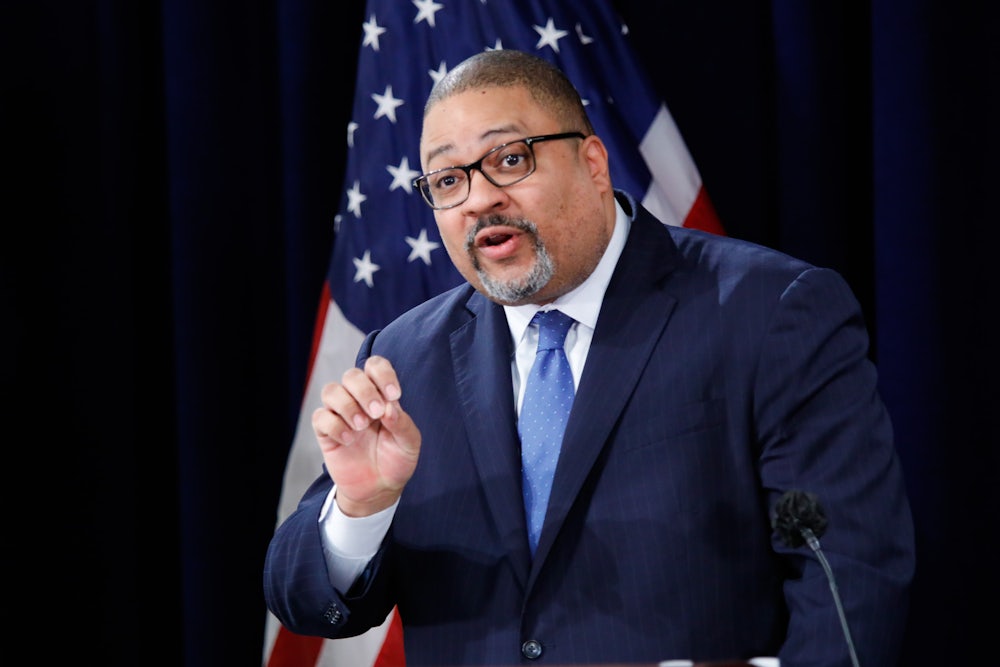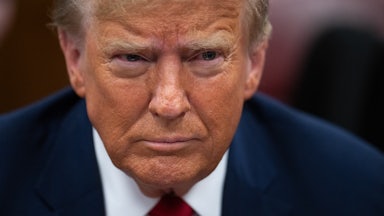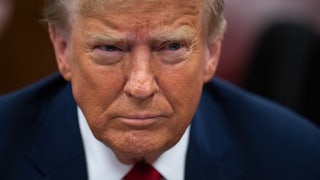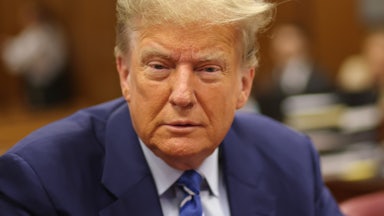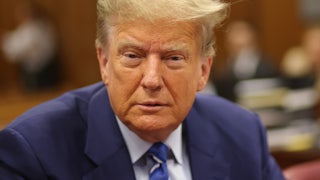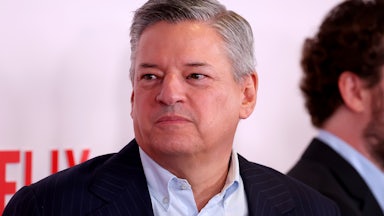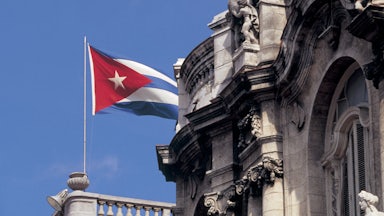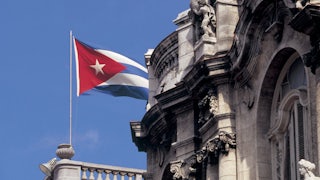In a significant filing that reshapes the debate over Donald Trump’s 34 felony convictions in New York, Manhattan District Attorney Alvin Bragg Tuesday served up to Justice Juan Merchan a menu of options for preserving Trump’s convictions while still accommodating the constitutional interests that Trump insists dictate complete erasure of the case.
Bragg’s measured and temperate 81-page argument acknowledges the weighty factors favoring closing up shop. These include the impalpable effects on the presidency of the stigma of criminal proceedings as well as the practical challenges of attending to a criminal prosecution while in office. (Those practical challenges, as Bragg pointed out, are much reduced here since the trial is completed and the actual sentencing will take up little time.)
Counterbalancing these considerations, however, Bragg emphasized the substantial public costs to “legitimate governmental objectives” of vacating the convictions. Most importantly, Bragg argued that granting Trump’s motion would undermine public confidence in the criminal justice system.
Merchan already has shown some sensitivity to the historical dilemma posed by Trump’s reelection, including by permitting this wide-ranging motion to be filed before he decided on sentencing. Bragg’s argument, and its array of three alternatives for the court, gave Merchan room to maneuver without unraveling the entire prosecution and jury verdict.
First, Bragg suggested that Merchan could go ahead and impose sentence before January 20. Appeals of that sentence, or any further proceedings in the case, would then be held in abeyance until the end of Trump’s tenure, at which point they would simply pick up where they left off. Bragg analogized this alternative to cases in New York that drag on for many years after sentencing because, for example, a defendant has escaped.
This course of action would come closest to the outcome that Trump antagonists have thirsted for: an actual announcement of sentence that would remain in some sense on the books and in the historical record, even though it might not be executed for years, if ever.
Second, if Merchan does not impose sentence before January 20, Bragg suggested that the entire case, sentencing included, could go on ice until after the end of Trump’s presidency. Merchan pointed out that while courts are required to pronounce sentence without unreasonable delay, legally excusable delay counts as reasonable; and it’s hard to imagine a more excusable delay than the ascent of the defendant to the presidency.
Moreover, it’s Trump who is insisting on suspending the position of sentence while he serves, and delay caused by the defendant’s own motions are per se reasonable. And of course, to the extent delay is required by constitutional protections of the official functions of the presidency, it necessarily would be permissible.
Bragg’s third, most innovative option invokes the “abatement doctrine,” typically applied when a defendant dies after a jury verdict. In most states (though not New York), the conviction remains on record even if the defendant dies before the appeals process is complete. A common practice is to note in the record that the defendant was convicted and that the presumption of innocence was therefore removed.
Bragg suggests that Merchan could adopt an analogous approach, recording that Trump was convicted but not sentenced, with the conviction neither affirmed nor reversed on appeal due to presidential immunity. Merchan thus could bring the case to closure and ensure it not distract Trump during his time in office. At the same time, however, he would formalize Trump’s convictions for the legal record.
These options, especially the third, are likely to infuriate Trump. When Trump filed his motion last week, it largely went unnoticed that he was seeking, unsurprisingly, a comprehensive victory: not just a reversal of his convictions but a complete erasure of the case from the historical record. He argued that just continuing the case through sentencing would have an unconstitutional impact on the office of the presidency.
Trump’s argument relies heavily on the controversial 2000 memorandum from the Justice Department’s Office of Legal Counsel, or OLC, issued in 2000 (and reaffirming the office’s similar analysis of 1973), which concludes that the Constitution bars the indictment and criminal prosecution of a sitting president. The conclusion, binding on the executive branch, does not turn on the distinction between official and unofficial conduct. It’s a straightforward categorical bar against “indicting or prosecuting a current president.”
Trump seeks to expand the OLC principle in two ways. First, he argues it applies to a president-elect, citing stray statements in cases as well as the 1963 Presidential Transition Act, which speak blandly about the importance of an orderly transition process. It’s a cheeky argument coming from the man who spent months resisting an orderly transition after the 2020 election and who continues to this day to sow unwarranted doubt about that contest.
In any event, the line in the OLC opinion, not to mention the Supreme Court’s immunity opinion and common sense, is clean: Only one person is exercising the executive power of the United States at a time, and that person right now is Joe Biden. The special considerations that Trump is trying to invoke can’t be stretched to fit a president in waiting. He remains for now a private citizen.
Second, Trump argues that institutional considerations require the case to be permanently dismissed. But again the OLC memo is clear in its analysis of what it specifies is “temporary immunity” during the pendency of the presidency. Indeed, part of its analysis is to explain why the immunity from prosecution principle it endorses doesn’t foreclose eventual criminal accountability of the president.
All of these legal arguments and appeals to analogy have to be taken as fluid in light of what Bragg, Merchan, and the entire legal system recognize as the “unprecedented circumstances” of the election of a convict to the presidency. Bragg’s motion gives Merchan ample room to impose sentence now, which would leave Trump and MAGA nation apoplectic. But he can also hold off, and if he does so until January 20, the much more muscular principles that protect a sitting president will kick in.
The stakes of Merchan’s imminent decision are great. The import is not practical—the odds that Trump would ever serve any real sentence plummeted to near zero on the night of November 5. But the president-elect wants to leverage that victory to make his 34 convictions evaporate and leave history’s account of his conduct blank. Merchan is the principal obstacle left standing between Trump and that audacious goal.
